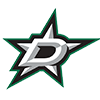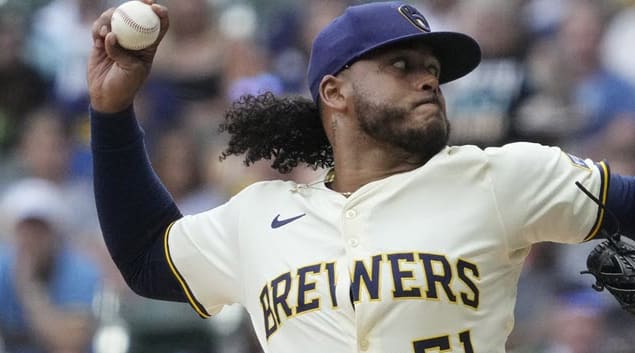-----Original Message-----
From: [email protected]
Sent: Tuesday, July 27 , 2010 7:54am
To: "Christopher Liss"
Subject: RE: Charging the Mound
This week is the trade deadline, so that's a natural topic to cover this week. I want to avoid doing too much speculative talk, however, as this column would get dated pretty quickly, given the multi-day format. But I do want to discuss a couple of related issues, and I also discuss one of our reader's dilemmas as a commissioner.
Let's started with the now-infamous Dan Haren trade. Count me among the horde of analysts that believe the Diamondbacks didn't get enough from Haren, and that there was no particular urgency to do this trade now. While in real dollars Haren is pretty expensive, relative to other pitchers on the market he was considered very affordable, perhaps even under-market. So while the Diamondbacks need to save money somewhere, they also have to realize that Haren's contract has to be considered an asset, unless they believe that he's some sort of ticking time bomb, a la Brandon Webb towards the end of the 2008 season. Is it possible they acted here out of regret that they didn't act then? Is that even a proper motivation?
The only thing that bothers me about weighing in on what the Diamondbacks got for Haren is the near unaminity of the response to the deal. Just as a small sampling, this deal has been criticized by Jeff Passan, Joe Sheehan, and Keith Law (sub.
-----Original Message-----
From: [email protected]
Sent: Tuesday, July 27 , 2010 7:54am
To: "Christopher Liss"
Subject: RE: Charging the Mound
This week is the trade deadline, so that's a natural topic to cover this week. I want to avoid doing too much speculative talk, however, as this column would get dated pretty quickly, given the multi-day format. But I do want to discuss a couple of related issues, and I also discuss one of our reader's dilemmas as a commissioner.
Let's started with the now-infamous Dan Haren trade. Count me among the horde of analysts that believe the Diamondbacks didn't get enough from Haren, and that there was no particular urgency to do this trade now. While in real dollars Haren is pretty expensive, relative to other pitchers on the market he was considered very affordable, perhaps even under-market. So while the Diamondbacks need to save money somewhere, they also have to realize that Haren's contract has to be considered an asset, unless they believe that he's some sort of ticking time bomb, a la Brandon Webb towards the end of the 2008 season. Is it possible they acted here out of regret that they didn't act then? Is that even a proper motivation?
The only thing that bothers me about weighing in on what the Diamondbacks got for Haren is the near unaminity of the response to the deal. Just as a small sampling, this deal has been criticized by Jeff Passan, Joe Sheehan, and Keith Law (sub. required) among many others. Is there a sabermetrically-friendly bent to that sample? Yes, but the reaction to the trade hasn't been restricted to that crowd. In fact, you'll almost always find that if there's a group of writers that's inclined to like a trade from the side getting the minor leaguers better, it's this group. Anyhow, whenever the opinion on an issue is weighted so heavily on one side, I try to look at it again to see if there's something I'm missing - what is the other side?
I don't think that Joe Saunders is the centerpiece to this deal, no matter what was said at the press conference. I think the two keys to this deal are the prospects, the ones furthest away from the majors, in Patrick Corbin and the Player-to-be-named-later, who from most reports is going to be Tyler Skaggs. Obviously, the Diamondbacks can't yet talk about the PTBNL, so that makes it a little harder for them to justify the deal. Even still, it's awfully difficult to trade a rotation anchor like Haren and have the key be two guys that are in High-A, at best.
The comment I've seen made in a couple of circles is that this trade would get banned in most fantasy leagues. Of course, it's not a perfect comparison. The dollars that the Diamondbacks save are real, for starters. Moreover, there's significant motivation to have a smaller payroll, because of MLB's revenue-sharing plan, something that doesn't exist in any fantasy league. But if you were the commish, would you exercise your ban-hammer powers in a dynasty league? How about in real life?
What do you think about Saunders going forward? Last week we talked about how most AL pitchers really benefit from coming over to the NL, but does going to Arizona wipe out most of that benefit? The ballpark change is definitely a negative one, and he's getting backed by a pretty awful bullpen (note: does not apply when facing the Mets). We've had to look at this phenomenon four times recently, with Haren, Jon Garland, Edwin Jackson and Ian Kennedy. Haren has actually been better at home than on the road during his Arizona tenure, and his overall numbers had remained similar until this year. Kennedy has been far superior at home (3.53 ERA) than on the road (4.70), and we don't really have a good baseline for him because he was hurt prior to this year. Jackson, on the other hand, has been hurt by the ballpark quite a bit (5.66 home ERA). Garland blew up in 14 Chase Field starts last year (5.29 ERA with 11 homers allowed in 83.1 innings). Sample size is a problem for the latter three pitchers, so take that with the appropriate grain of salt, but I think that the league change and the ballpark will probably cancel each other out with Saunders.
Another trade deadline-related issue I want to talk about is how quickly a team's likelihood of pulling a deal can change. The Tigers probably were considered buyers as recently as three-to-four days ago, but now that they've lost three offensive starters in the span of a week (Brandon Inge, Magglio Ordonez and Carlos Guillen), are there just too many holes to fill? That lineup they put up against Matt Garza and the Rays was especially gnarly - Wil Rhymes batting second, Donald Kelly batting seventh, Gerald Laird eighth and Danny Worth batting ninth. Do they just have to suck it up and write off 2010, or is there something that can be done?
One injury might have the opposite effect for a different team, the Marlins. They just lost Chris Coghlan to a freak injury - when "pieing" teammate Wes Helms after Sunday's win against the Braves, he tore the MCL in his left knee (it's worth noting that he got hit by a pitch on the same knee earlier in the game). Anyhow, if he needs surgery, he's out 6-to-8 weeks. To replace Coghlan, the Marlins called up Logan Morrison, one of their elite prospects who otherwise didn't have a spot to play right now. They still don't have a spot for Cameron Maybin, but maybe this is the start of them becoming sellers in this market? They're one game over .500, 7.5 games out in the NL East, 5.5 out in the Wild Card. Is that enough to hang onto the likes of Dan Uggla, Cody Ross and Jorge Cantu and try to make a run for it? Or do they run a danger of missing their window on those guys and getting nothing for them in the offseason? If you're the Marlins' GM, what does this team need? Should they be buyers instead?
Finally, I want to talk more commish issues with you. I asked you earlier about what you'd do with the Dan Haren trade if you were the commish. One our readers, Jim, perfectly illustrates one of the problems with being both an owner and a commish:
I am in a 12 team H2H keeper league that's going on it's 7th year. Several owners realized early on they didn't have the time to commit to a keeper league and bowed out gracefully and were quickly replaced. Now it's to the point where most teams are very competitive, but there are a few stragglers. They go through the motions of setting their lineups (most of the time), but they are extremely inactive on the waiver wire (unless there is an injury), have very little knowledge of the minor leaguers coming up, and have little knowledge of the players in the league with the exception of the players on their own teams (and I even question that). They are hit or miss as far as showing up for the draft, and do very little pre-ranking if they don't show. Occasional they get lucky and end up with a good draft and compete, but always finish on the bottom.
The owner in me sees this as 2 less teams I have to worry about competing with me for a playoff spot, but the commissioner in me sees them bringing down the competition level in the league. Would I be overstepping my bounds in replacing them? Nobody likes to fire somebody, but I fear if things continue the way they are their teams will have nothing keeper worthy in a year or two, and then it will be nearly impossible to find an owner willing to take over their mess and rebuild it. It's not like I haven't had conversations with them about their teams in the past, but it seems like my words are falling on deaf ears. I do realize not everybody is on the same level, there are different levels of fanaticisms, and somebody has to finish on the bottom. They say they want to play and want to be in the league, but their lack of knowledge, participation and effort says otherwise. Most teams would like to expand things to include a minor league roster, but I don't even want to consider this until I resolve this issue. I believe it is my responsibility as commissioner to look out for the integrity of the league and keep things competitive. Am I wrong?
What say you? Does it matter that it's a keeper league? Does the decision change if there's a significant entry fee for the league? How about if the owners have been in the league for multiple years? Does it make it more difficult or easier if an owner is a long-time owner?
-----Original Message-----
From: "Christopher Liss"
Sent: Tuesday, July 27, 2010 5:58pm
To: [email protected]
Subject: Re: Charging the Mound
I don't know what there is to add about the Haren deal, so I'll leave that alone.
As for Jim's questions, I'm a hard-ass about these things, and I have little sympathy for the lazy and the inept. The solution is to tell the people in the league that their actions affect others - if you don't remain active as the year goes on, you do a disservice to those who are strong in the counting categories, but weak in the percentage ones (because your ERA, WHIP and AVG don't fall off, but you're easily passed in HR, K, SB, etc.) You show them evidence of their neglect, and you tell them that the league has evolved to the point where people want more serious competition. You point out that a game is only fun to the extent people are trying their best, and you're trying to create the most enjoyable league possible for its dedicated owners. Then you give them a choice - do they want to take this seriously, stay active, make moves all year even if their team isn't doing great, or do they want to quit? If family, work, ADD or whatever prevents them from that level of commitment, no hard feelings, but it's probably time for them to find a more casual league. If they comprehend what you're saying, and vow to make the commitment for which you ask, let them stay in. If they complain or whine that you're a hard-ass, or agree but then show the same neglect, you kick them out. In the end, you'll save them money, and you'll benefit the people whose effort makes the league fun. Being a commish is a thankless job, but if you're going to take it, you have to have the courage to do the right thing at the expense of some hurt feelings, or people being angry with you. If you're not up to that, you're basically sentencing everyone else to a flawed league because you don't want to be the bad guy. It's selfish and weak. So Jim, yes - it is your responsibility to look out for the integrity of the league. You can say all of this nicely, but it might not be received that way. Still, you're doing the right thing, and that's what matters.
If I were the commish of a league, and someone traded Haren for Saunders and a couple mediocre prospects, I'd need the Haren-trader to account for what he saw in them. If he could not give a plausible argument as to why he thought that deal was in his interest, I'd nix it. There are two grounds for vetoing a trade: (1) Collusion - which is very rare; and (2) Neglect - which is very common. If you can't make even a decent case, then it falls under (2). I don't like to presume I know what's going to happen, though, so with a trade that's terrible on its face like this one, the owner making the bad trade should be given an opportunity to make his case. If he really likes the middling prospects, or thinks Haren's arm is about to fall off, then I'd admonish him to explore the market more, but I'd probably let it go. The issue is whether he considered the deal seriously before pulling the trigger, not whether he's right or wrong which we'll only know in hindsight. Of course, there are trades so egregious that we do know in advance (I'm thinking of an infamous one that went down in the RotoWire Staff League a few years back) - and in those circumstances the owner's got a pretty high burden to explain what in God's name he was thinking before I'd allow it to go through.
I think the Tigers (and even teams with more remote chances like the Red Sox - five games back and chasing a much better team) should make moves within reason, i.e., don't trade your best prospect for a rental, but if there's a guy at Double-A who projects as a No. 4 starter, and he can get you Alberto Callaspo, then go ahead. The Angels, A's and Marlins still have a five-percent-ish chance to make the playoffs, and you should not dismiss that entirely. If you're the Rangers, then you move Justin Smoak for Cliff Lee, and maybe even another big piece for Roy Oswalt (assuming the Astros pick up most of his salary). To the extent your chances are slim, the balance shifts toward the future, but it's not 100 percent and zero until your chances of winning approach zero. The Diamondbacks, for instance, should be 100 percent focused on the future, but the Angels, A's, Marlins and even Brewers should still care a little about 2010. That doesn't mean the Brewers shouldn't trade Prince Fielder if the Rays were to offer them Jeremy Hellickson and Desmond Jennings - only that before they agree to any deal, they need to acknowledge that giving up on 2010 is an actual cost.
The Marlins are a tougher call because though their hopes are slim, their players are unlikely to fetch major prospects anyway, so it might be worth it to see if they can make a run. Moreover, were the Marlins to squeak into the playoffs, they'd be more dangerous than most Wild Card teams because they have arguably the best pitcher in baseball at the top of their rotation, and a decent No. 2 in Ricky Nolasco - something that could make a big difference in a short series. So if I'm Florida, I'm shopping everyone, and if there's a prospect I really like, I'd take the deal for Cantu, Uggla, etc. But if I'm just being offered potential innings eaters or fourth-outfielders, I'd stand pat and play it out.
-----Original Message-----
From: [email protected]
Sent: Wednesday, July 28, 2010 12:35am
To: "Jeff Erickson"
Subject: Re: Charging the Mound
There's one other financial variable at play for these teams that have to decide if they should buy or sell at the trade deadline, and it's one I've previously dismissed. That's attendance size. For instance, despite being eight games out at the start of play on Tuesday, the Brewers still drew 32,286 for a weeknight game against the Reds, a division rival but hardly a big draw like the Cubs or Cardinals. In fact, it's actually a smidge below their average attendance of 34,747 - which is good for 10th in the league. They've had some drop-off from 2009 to 2010, but their support is remarkable given that they've had so little overall success.
I think there are a couple of implications from this. One, I'm assuming they should be more liquid financially to land a player at the deadline than some of the other teams in similar-sized markets, like the Reds, for instance. Two, if they do sell off a big piece like Fielder, maybe they feel the hit in fan loyalty a bit more. It's a lot easier for the Rays last year to sell off Scott Kazmir (and perhaps that's a bad example, because he was already cratering), or the Marlins this year trading away a major player (say, for instance, if they were absolutely blown away by an offer for Hanley Ramirez), because they have much less to lose anyhow.
In fact, the Marlins as usual are among the worst in average attendance, this year ahead of just the Indians, at 17,606 per game. They're getting a new stadium in 2012, and presumably hope to build up to it. If there's a trade right now involving Dan Uggla or Jorge Cantu or Cody Ross, the more I think about it, the more it's imperative for them to pull the trigger if it makes them a better team for 2012. Maybe if they had one less team to go through in the NL East or were just a couple games closer in the wild card, the calculation would be different, but I think this almost has to be a cold-blooded evaluation in their case. Which, given their history as a franchise, should be second nature to them anyhow.
Basically, this is a multi-variable equation, between a team's playoff odds, current payroll structure, team finances in terms of revenue, and roster composition (age of the current roster, state of the farm system, status of the stars on your team, etc...). The late great Doug Pappas introduced the concept of marginal dollars per marginal win at Baseball Prospectus back in 2002 (sub req.), and I think that's a good starting point for teams looking to solve the puzzle. It's not necessarily an equation for every franchise, but I think it's a worthy exercise, even for those that it's more appropriate to consider emotion and the desire to win as the most worthy trait. It's best to know just how much it costs you to go for it, so you go in eyes wide-open. Are there any other variables that we should add to this calculus?
We talked on-air today on our XM/Sirius show (XM 147, Sirius 211) about how a team can go on a winning or losing streak this week and how that can change the equation. I think that's appropriate for some franchises, if all the other variables are in the right direction, but it can be dangerous for others. The nightmare scenario is that you rob the future for the present for multiple years in a row without bearing any fruit (i.e., playoff spots, World Series appearances, and Championships), and at the end that neglect for the future puts you in a situation like that of the Astros today. They have the potential to be bottom feeders, even in a weak NL Central (and before the readers of fans from NL Central teams comment angrily, keep in mind that I'm a fan of an NL Central team), for the next decade. Don't dismiss the 5% chance - sometimes they come in - but be aware of the costs, and be cognizant that your chances are 5% and not 15%, or 2.5% instead of 10%. Like poker (there, I did it - our weekly poker analogy), you have to get the right price to chase that straight or flush.
Regarding your response to Jim's questions, I think that you nailed it. In fact, I think your response equally applies in a league where there's no entry fee but serious competition and in leagues where there's a big buy-in. The idea here is that this is a serious league, and if I'm going to invest my time and take it seriously, so should everyone else. That's doubly true in a keeper league, where you can't wipe out the implications from a bad deal or a bad league at the end of the season.
-----Original Message-----
From: "Christopher Liss"
Sent: Wednesday, April 28, 2010 11:11pm
To: "Jeff Erickson"
Subject: Charging the Mound
I'm not sure your point about the attendance doesn't cut the opposite way. If people show up for Brewers games even though they're essentially out of contention, then maybe they go because it's a nice venue, and the fan base likes baseball. So selling Fielder might not change that significantly. Whereas, in South Florida, maybe the fans wouldn't show up at all if they didn't have any star players. Or maybe they wouldn't show up no matter what the team's doing - the Rays aren't drawing well despite having the second best team in baseball chock full of young, rising stars.
In any event, two more trades went down today - Scott Podsednik to the Dodgers for yet to be named minor leaguers, and Jhonny Peralta to the Tigers for the other Giovanni Soto, a former 21st round pick who's doing well at Low-A. I don't see any real change for Peralta in the short term, but when Carlos Guillen and eventually Brandon Inge come back, he's likely to lose playing time unless he can play shortstop. Podsednik should fill in for Manny Ramirez the next two weeks, but when Ramirez comes back, he'll be a fourth OF, so his value takes a hit.
Also, with Shane Victorino going on the DL, Domonic Brown got the call and went 2-for-3 with a double. Of course, you should pick him up if he's still available, but by the time you're reading this it's probably too late already. (This is why you need to roster these guys ahead of time). It also means Jayson Werth might be staying put.



























